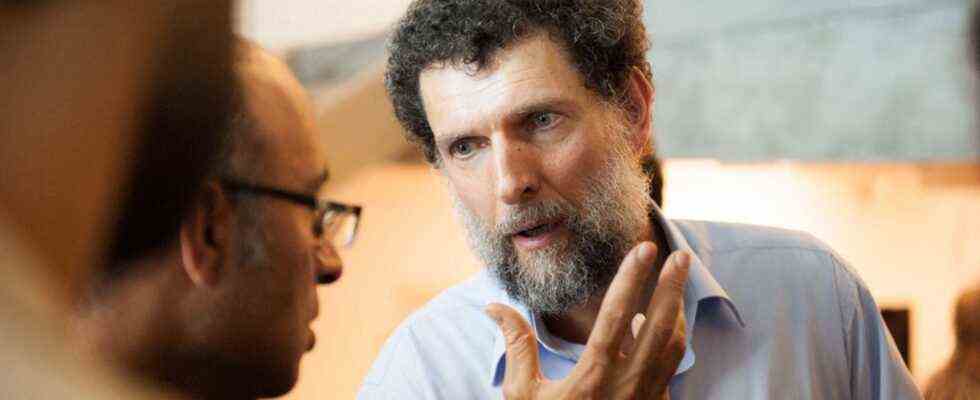Status: 25.10.2021 4:42 p.m.
The dispute between Turkish President Erdogan and the ambassadors sparked off on Osman Kavala. The ambassadors demand the release of the patron of culture. Why is he in custody at all?
Yavuz Özkaya sits at his desk in Ankara and shakes his head. When asked why Osman Kavala has been in prison for so long, he replies: “I just have no idea. He wasn’t that well known in public. And he’s not a politician either. He just does his projects. We just have.” no idea.”
Özkaya is an architect and worked with Osman Kavala for many years. In eastern Turkey, for example in Ani, they restored historic Armenian buildings – a project in which the Turkish Ministry of Culture was also involved. Ministry employees were very concerned when Kavala was arrested in autumn 2017, says Özkaya.
Their boss, President Recep Tayyip Erdogan, declared Kavala to be his special enemy. The patron of culture was involved in coup plans, said Erdogan: “Someone who was the terrorists’ source of finance during the Gezi Park protests is currently in prison. Why should our judiciary arrest an innocent person, someone who has nothing to do with you Has?”
Mercator Foundation stands by Kavala
Anne Duncker almost despairs at such allegations. She met the tall, slender man with gray curly hair more than 20 years ago after the great earthquake near Istanbul, when they were both helping the victims. She now works for the German Mercator Foundation, which also implemented joint projects with the 64-year-old. Duncker says of Kavala: “He is calm himself, looking for balance and not someone at all who agitates politically or tries to achieve something through aggressiveness.”
In the indictment for the first trial, not only the German Goethe Institute in Istanbul appeared, but also the Mercator Foundation. “The allegations that were generally raised against German foundations and cultural mediators that we wanted to influence the Gezi protests at the time are simply wrong,” says Duncker.
Kavala still in custody
Mercator still stands by Kavala despite his imprisonment. Some other partners have withdrawn, says Asena Günal, his closest colleague. In February last year, an Istanbul court acquitted the patron of culture. Günal and other friends were waiting near the prison. He did not come. He was immediately arrested again because of a new investigation.
“That is torture, that is calculated cruelty,” says Günal. “And I don’t know when he’ll be released. I really only see one chance if the government is voted out of office.”
Deadline from the Council of Europe until the end of November
Kavala’s case is a prime example of the arbitrariness of the Turkish judiciary under the influence of politics, say critics. In May last year, the European Court of Human Rights once again made a very clear request: Turkey must release Kavala immediately. She ignores that to this day. The Council of Europe, to which the Court of Justice belongs, set her a deadline of the end of November.
The SPD member of the Bundestag Frank Schwabe is also a member of the Council of Europe. He explains:
If we were maybe five to twelve before, then maybe we are a few seconds to twelve. In the end it is a question of the credibility of the entire institution. And if Turkey then clearly says that we will not implement the court ruling, Turkey is now threatened with expulsion from the Council of Europe.
Kavala’s trial was postponed until November 26th, shortly before the Council of Europe deadline. Schwabe says: “From my point of view, this legal process is the last turn that Turkey can take to avert this exclusion process. And that is why the urgent expectation is that Kavala will be set free by November 26th at the latest.”
Whose friends are worried. Kavala drives his projects forward with small notes from prison, even initiates new ones. And yet Yavuz Özkaya, the architect from Ankara, says: “We miss him very much.”

